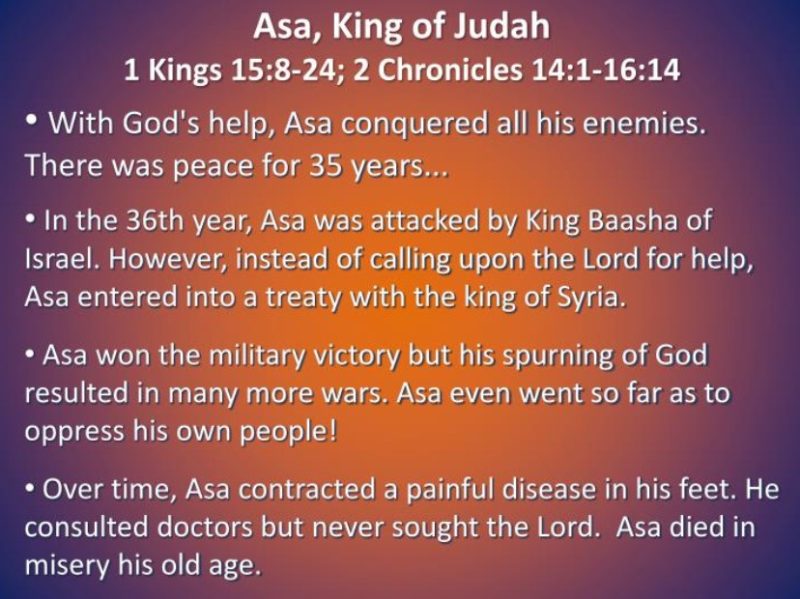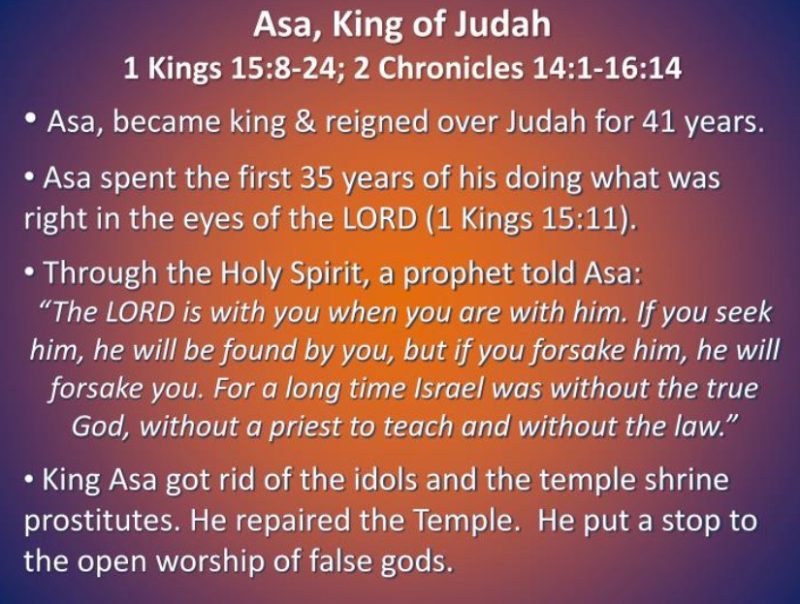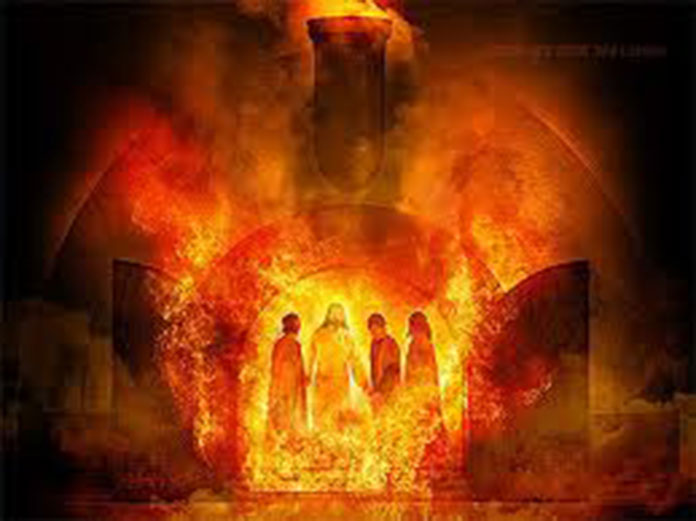
The Great Benefit of Suffering for Christ by F.B. Meyer
F.B. Meyer, Joseph
The Great Benefit of Suffering for Christ
 Of sufferings and as it related to the life of Joseph, son of Jacob, F.B. Meyer wrote:
Of sufferings and as it related to the life of Joseph, son of Jacob, F.B. Meyer wrote:
“But besides all this, his religious notions added greatly to his distress. He had been taught by Jacob the theory which comes out so prominently in the speeches of Job’s three friends, and which was so generally held by all their teachers and associates in that olden, Eastern, philosophic, deeply-pondering world; that good would come to the good, and evil to the bad; that prosperity was the sign of the Divine favour, and adversity of the Divine anger. And Joseph had tried to be good. Had he not always kept his father’s commandments and acted righteously, though his brethren were men of evil report, and tried to make him as bad as themselves? But what had he gained by his integrity? Simply the murderous jealousy and hatred of his own flesh and blood. Had he not, in the full flush of youthful passion, resisted the blandishments of the beautiful Egyptian, because he would not sin against God? And what had he gained by that? Simply the stigma which threatened to cling to him of having committed the very wickedness it was so hard not to commit; and, in addition, an undeserved punishment. Had he not always been kind and gentle to his fellow-prisoners, listening to their stories, speaking comfort to their hearts? And what had he gained by that? To judge by what he saw, simply nothing; and he might as well have kept his kindness to himself.
Was it of any use, then, being good? Could there be any truth in what his father had taught him of good coming to the good, and evil to the bad? Was there a God who judgeth righteously in the earth? You who have been misunderstood, who have sown seeds of holiness and love to reap nothing but disappointment, loss, suffering, and hate – you know something of what Joseph felt in that wretched dungeon hole.
Then, too, disappointment poured her bitter drops into the bitter cup. What had become of those early dreams, those dreams of coming greatness, which had filled his young brain with splendid phantasmagoria? We these not from God? He had thought so – yes, and his venerable father had thought so too; and he should have known, for he had talked with God many a time. Were these imaginings the delusions of a fevered brain, or mocking lies? Was there no truth, no fidelity, in heaven or earth? Had God forsaken him? Was he to spend all his days in that dungeon, dragging on a weary life, never again enjoying the bliss of freedom: and all because he had dared to do right? Do you wonder at the young heart being weighed almost to breaking?
And yet Joseph’s experience is not alone. You may have never been confined in a dungeon; and yet you may have often sat in darkness, and felt around you the limitation which forbade your doing as you wished. You may have been doing right, and doing right may have brought you into some unforeseen difficulty; and you are disposed to say, “I have been too honest.” Or you may have been doing a noble act to someone, as Joseph did to Potiphar, and it has been taken in quite a wrong light. Who does not know what it is to be misunderstood, misrepresented, accused falsely, and punished wrongfully?
Each begins life so buoyantly and hopefully. Youth, attempting the solution of the strange problem of existence, fears nothing, forbodes no ill. The minstrel, Hope, keys her chords to the loftiest strains of exultation. The sun shines; the blue wavelets break in music around the boat; the sails swell gently; Love and Beauty hold the rudder-bands; and though stories of the wreckage of the treacherous sea are freely told, there is no kind of fear that such experiences should ever overtake that craft. But presently disappointment, sorrow, and disaster overcloud the sky and blot out the sunny prospect; and the young mariner wakes as from a dream, “Can this be I, who imagined that I should never see ill?” Then come several tremendous struggles of the soul to wrench itself free. The muscles are strained as whipcord; the beads of perspiration stand on the brow: but every effort only entangles the limbs more helplessly. And at last, exhausted and helpless, the young life ceases to struggle, and lies still, cowed and beaten, as the wild denizen (citizen) of the plains, when it has lain for hours in the hunter’s snare. Surely there was something of this sort in Joseph’s condition, as he lay in that wretched dungeon.
II. THESE SUFFERINGS WROUGHT VERY BENEFICIALLY. – Taken on the lowest ground, this imprisonment served Joseph’s temporal interests. That prison was the place where state prisoners were bound. Thither court magnates who had fallen under suspicion were sent. Chief butler and chief baker do not seem much to us, but they were titles for very august people. Such men would talk freely with Joseph; and in doing so would give him a great insight into political parties, and a knowledge of men and things generally, which in after-days must have been of great service to him.
But there is more than this. Psalm 105:18, referring to Joseph’s imprisonment, has a striking alternative rendering, “His soul entered into iron.” Turn that about, and render it in our language, and it reads thus, Iron entered into his soul. Is there not a truth in this? It may not be the truth intended in that verse, but it is a very profound truth, that sorrow and privation, the yoke borne in the youth, the soul’s enforced restraint, are all conducive to an iron tenacity and strength of purpose, and endurance, a fortitude, which are the indispensible foundation and framework of a noble character. Do not flinch from suffering. Bear it silently, patiently, resignedly; and be assured that it is God’s way of infusing iron into your spiritual make-up.
As a boy, Joseph’s character tended to softness. He was a little spoilt by his father. He was too proud of his coat. He was rather given to tales. He was too full of his dreams and foreshadowed greatness. None of these great faults; but he lacked strength, grip, power to rule. But what a difference his imprisonment made in him! From that moment he carries himself with wisdom, modesty, courage, and manly resolution, that never fail him. He acts as a born ruler of men. He carries an alien country through the stress of a great famine, without a symptom of revolt. He holds his own with the proudest aristocracy of the time. He promotes the most radical changes. He had learned to hold his peace and wait. Surely the iron had entered his soul!
It is just this that suffering will do for you. The world wants iron dukes, iron battalions, iron sinews, and thews of steel. God wants iron saints; and since there is no way of imparting iron to the moral nature than by letting his people suffer, He lets them suffer. “No chastening for the present seemeth to be joyous, but grievous; nevertheless afterward it yieldeth the peaceable fruit of righteousness unto them which are exercised thereby.” Are you in prison for doing right? Are the best years of your life slipping away in enforced monotony? Are you beset by opposition, misunderstanding, obloquy (contemptuous speech), and scorn, as the thick undergrowth besets the passage of the woodsman pioneer? Then take heart; the time is not wasted; God is only putting you through regimen. The iron crown of suffering precedes the golden crown of glory. And iron is entering into your soul to make it strong and brave.
Is some aged eyes perusing these words? If so, the question may be asked, Why does God sometimes fill a whole life with discipline, and give few opportunities for showing the iron quality of the soul? Why give iron to the soul, and then keep it from active service? Ah, that is which goes far to prove our glorious destiny. There must be another world somewhere, a world of glorious ministry, for which we are training. “There is service in the sky.” And it may be that God counts a human life of seventy years of suffering not too long an education for a soul which may serve Him through the eternities. It is in the prison that Joseph is fitted for the unknown life of Pharoah’s palace; and if he could have foreseen the future, he wold not have wondered at the severe discipline. If only we could see all that awaits us in the palace of the Great King, we should not be so surprised at certain experiences which befall us in the earth’s darker cells. You are being trained for service I God’s Home, and in the upper spaces of the universe.” F.B. Meyer, Joseph, p. 44-48
In His book Joseph, F.B. Meyer captures and conveys a treasure chest of truth concerning the blessed benefits of suffering.
“JOSEPH’S COMFORT IN THE MIDST OF THESE SOFFERINGS. – “He was there in the prison; but the Lord was with him.” The lord was with him in the palace of Potiphar; but when Joseph went to prison, the Lord went there too. The only thing which severs us from God is sin; so long as we walk with God, God will walk with us; and if our path dips down from the sunny upland lawns into the valley with its clinging mists, He will go at our side. The godly man is much more independent of men and things than others. It is God who makes him blessed. Like the golden city, he has no need of sun or moon, for the Lord God is his everlasting light. If he is in a palace he is glad, not so much because of its delights as because God is there. And if he is in a prison he can sing and give praises, because the God of love bears him company. To the soul which is absorbed with God, all places and experiences are much the same. “If I say, Surely the darkness shall cover me; even the night (of sorrow and of confinement) shall be light about me; yea, the night shineth as the day.”
Moreover, the Lord showed him mercy. Oh, wondrous revelation! … God our Father has often to turn down the lights of our life because He wants to show us mercy. Whenever you get into a prison of circumstances, be on the watch. Prisons are rare places for seeing things. It was in prison that Bunyan saw his wondrous allegory, and Paul met the LORD, and John looked through heaven’s open door, and Joseph saw God’s mercy. God has no chance to show his mercy to some of us except when we are in some sore sorrow. The night is the time to see the stars.
God can also raise up friends for his servants in most unlikely places, and of most unlikely people. “The Lord gave him favour in the sight of the keeper of the prison.” He was probably a rough, unkindly man, quite prepared to copy the dislikes of his master, the great Potiphar, and to embitter the daily existence of this Hebrew slave. But there was another Power at work, of which he knew nothing, inclining him towards his ward, and leading him to put him in a position of trust. All hearts are open to our King: at his girdle swing the keys by which the most unlikely door can be unlocked. “When a man’s ways please the Lord, He maketh even his enemies to be at peace with him.” It is as easy for God to turn a man’s heart, as it is for the husbandman to turn the course of a brook to carry fertility to an arid plot.\
There is always alleviation for our troubles in ministry to others. Joseph found it so. It must have been a welcome relief to the monotony of his grief when he found himself entrusted with the care of the royal prisoners. A new interest came into his life, and he almost forgot the heavy pressure of his own troubles amid the interest of listening to the tales of those who were more unfortunate than himself. It is very interesting to notice what a deep human interest he took in the separate cases of his charges, noticing the expression of their faces, inquiring kindly after their welfare, sitting down to listen to their tale. Joseph is the patron of all prison philanthropists; but he took to this holy work not primarily because he had an enthusiasm for it, but because it gave a welcome opiate to his own griefs.
There is no anodyne (medicine) for heart-sorrow like ministry to others. If your life is woven with the dark shades of sorrow, do not sit down to deplore in solitude your hapless lot, but arise to seek out those who are more miserable than you are, bearing them balm for their wounds and love for their heart-breaks. And if you are unable to give much more practical help, you need not abandon yourself to the gratification of lonely sorrow, for you may largely help the children of bitterness by imitating Joseph in listening to their tales of woe or to their dreams of foreboding. It is a great art to be a good listener. The burdened heart longs to pour out its tale in a sympathetic ear. There is immense relief in the telling out of pain. But it cannot be hurried; it needs plenty of time; it cannot clear itself of its silt and deposits unless it is allowed leisure to stand. and so the sorrowful turn away from men engages in the full rush of active life as too busy, and seek out those who, like themselves, have been “winged,” and are obliged to go softly, as Joseph was, when the servants of Pharoah found him in the Egyptian dungeon. If you can do nothing else, listen well, and comfort others with the comfort wherewith you yourself have been comforted by God.
And as you listen, and comfort, and wipe the falling tears, you will discover that your own load is lighter, and that a branch or twig of the true tree – the tree of the Cross – has fallen into the bitter waters of your own life, making the Marah, Naomi, and the marshes of salt tears will have been healed. Out of such intercourse you will get with what Joseph got – the key which will unlock the heavy doors by which you have been shut in.
And now some closing words to those who are suffering wrongfully. Do not be surprised. You are the followers of One who was misunderstood from the age of twelve to the day of his ascension; who did not sin, and yet was counted as a sinner; concerning whom the unanimous testimony was, “I find in Him no fault at all”; and yet they called Him Beelzebub! If they spoke thus of the Master of the house, how much more concerning the household! “Think it not strange concerning the fiery trial which is to try you, as though some strange thing happened unto you.”
Do not get weary in well-doing. Joseph might have said, “I give all up; of what profit is my godliness? I may as well live as others do.” How much nobler was his course of patient continuance in well-doing! Do right, because it is right to do right; because God sees you; because it puts gladness into the heart. And then, when you are misunderstood and ill-treated, you will not swerve, or sit down to whine and despair.
Above all, do not avenge yourselves. When Joseph recounted his troubles, he did not recriminate harshly on his brethren, or Potiphar, or Potiphar’s wife. He simply said: “I was stolen away out of the land of the Hebrews, and here also have I done nothing that they should put me into the hole.” He might have read the words of the apostle, “Avenge not yourselves, but rather give place unto wrath.” “If when ye do well, and suffer for it, ye take it patiently, this is acceptable with God.” We make a great mistake in trying always to clear ourselves; we should be much wiser to go straight on, humbly doing the next thing, and leaving God to vindicate us. “He will bring forth our righteousness as the light, and our judgment as the noonday.” In Psalm 105:19 there follow words which, rightly rendered, read thus: “The word of the Lord cleared him.” What a triumphant clearing did God give His faithful servant.
There will come hours in our lives, when we shall be misconstrued, misunderstood, slandered, falsely accused, wrongfully persecuted. At such times it is very difficult not to act on the policy of the men around us in the world. They at once appeal to law and force and public opinion. But the believer takes his case into a higher court, and lays it before his God. He is prepared to use any means that may appear divinely suggested. But he relies much more on the divine clearing than he does on his own most perfect arrangements. He is content to wait for months and years, till God arise to avenge his cause. It is a very little thing for him to be judged adversely at the bar of man: he cares only for the judgment of God, and awaits the moment when the righteous shall shine forth in the kingdom of their Father, as the sun when it breaks from all obscuring mists. “When Christ, who is our life, shall appear, then shall ye also appear with him in glory.” Ah! what a clearing-up of mysteries, what dissipating of misunderstandings, what vindication of character shall be there! Oh, slandered ones, you can afford to await the verdict of eternity; of God, who will bring out your righteousness as the light, and your judgment as the noon day.
In all the discipline of life it is of the utmost importance to see but one ordaining overruling will. If we view our imprisonments and misfortunes as the result of human malevolence, our live will be filled with fret and unrest. It is hard to suffer wrong at the hands of man, and to think that perhaps it might have never been. But there is a truer and more restful view, to consider all things as being under the law and rule of God; so that though they may originate in and come to us through the spite and malice of our fellows, yet, since before they reach us they have had to pass through the environing atmosphere of the Divine Presence, they have been transformed into his own sweet will for us.
It was Judas who plotted our Saviour’s death, and filled the garden with the capturing bands and flashing lights; and yet the Lord Jesus said that the Father was putting the cup to his lips. And though He was murdered by the chief priests and scribes, yet He so thoroughly acquiesced in the Father’s appointment, that He spoke of laying down his life, as if his death were entirely his own act. There is no evil to them that love God; and the believer loses sight of second causes, so absorbed is he in the contemplation of the unfolding of the mystery of his Father’s will. As the dying Kingsley said, “All is under law.” F.B. Meyer, Joseph, p. 48-53
The More I Suffer, the Freer I Become
Sign up for free email devotional HERE… The Moments with My Master email devotional is sent out for the edification of the body of Christ.
Abiding
“The things which are not Seen are Eternal” [podcast]

“While we look not at the things which are seen, but at the things which are not seen: for the things which are seen are temporal; but the things which are not seen are eternal.” 2 Corinthians 4:18
All good things must come to an end…. except for those who are going to share in the eternal glory of Jesus Christ!!!
“But as it is written, Eye hath not seen, nor ear heard, neither have entered into the heart of man, the things which God hath prepared for them that love him.” 1 Corinthians 2:9
No More Tears, Ever – Only for God’s People!
“And God shall wipe away all tears from their eyes; and there shall be no more death, neither sorrow, nor crying, neither shall there be any more pain: for the former things are passed away.” Revelation 21:4
STORE | Support | The Return of Christ | Stewardship | Jesus Sat Over Against The Treasury [podcast] | 10 Clues Your Love for God has Waxed Cold [podcast] | Where to Give and Where Not to Give | Fruit Abounding to Your Account! | Parable of the Talents [podcast] | Proving Jesus Matters [podcast] | Money, Material Wealth, and Riches | Rusted Gold and Fire Untold [podcast]



Abiding
The Curse of a Divided Heart and Blessing of a Whole Heart! [podcast]

Israel’s heart was divided. The solution.
“Their heart is divided; now shall they be found faulty: he shall break down their altars, he shall spoil their images … 12 Sow to yourselves in righteousness, reap in mercy; break up your fallow ground: for it is time to seek the LORD, till he come and rain righteousness upon you.” Hosea 10:2, 12
King Asa: Tragic end of an otherwise obedient, fruitful, God-glorifying life….
Are you blessed or cursed?
“Thus saith the LORD; Cursed be the man that trusteth in man, and maketh flesh his arm, and whose heart departeth from the LORD.” Jeremiah 17:5
King Asa trusted the physicians and not the LORD and he paid dearly.
“And Asa in the thirty and ninth year of his reign was diseased in his feet, until his disease was exceeding great: yet in his disease he sought not to the LORD, but to the physicians.” 2 Chronicles 16:12
Feet speak of foundation. Without feet, physically we cannot stand. Without a sound foundation of truth, of God’s Word in our lives, we shall not stand. Read Matthew 7:19-29.
One writes notes the following about the meaning of feet in God’s Word:
“Why Are Feet Important in the Bible? Just as men and women stand upon their feet as the foundation of upright posture, Bible verses also use feet as a euphemism to represent a strong foundation in various circumstances. Feet are not referenced as we see them today, but they are used as symbols to represent greater metaphorical concepts, such as guidance or direction.
The feet represented something that was common to all people but used differently. For example, one of the most noted scripture texts involving feet is Psalm 119:105, ‘Thy word is a lamp unto my feet, and a light unto my path.’ This emphasizes how the feet are used to travel and traverse. Yet, without the word, the traveler is left walking in the dark without a known path.
Essentially, the feet are referenced as a critical part of life as walking was commonplace. We naturally travel where our feet lead us and the Bible verses use feet to represent a means of traveling through life itself. If we walk down a dark path, we are likely to stumble. If we walk down a holy path, we are sure to please God. All of this is facilitated symbolically by the feet.”
The foundation truth we learn in God’s Word and obedience to it determines the direction of our lives.
“As ye have therefore received Christ Jesus the Lord, so walk ye in him: 7 Rooted and built up in him, and stablished in the faith, as ye have been taught, abounding therein with thanksgiving.” Colossians 2:6-7
Becoming Rooted and Grounded in Christ
Like Asa, many today trust the counsel of mere men, such as doctors and not God. This doesn’t mean going to a doctor is a sin and yet, the true disciple will primarily trust and obey and be led of the LORD, not men.
“But without faith it is impossible to please him: for he that cometh to God must believe that he is, and that he is a rewarder of them that diligently seek him.” Hebrews 11:6
Read Hebrews 3-4 prayerfully for the eternal danger of having “an evil heart of unbelief” AFTER being saved. Repentance required.
“They speak vanity every one with his neighbour: with flattering lips and with a double heart do they speak.” Psalms 12:2
Got depression? Are you seeking the LORD in true repentance whereby He will grant you great joy? (Psalms 51; 2 Timothy 1:7) Or, are you seeking out and trusting the mere human, the finite pundits of this fleeting world?
“But ye are forgers of lies, ye are all physicians of no value.” Job 13:4
Those who trust human physicians and not the Great Physician, are cursed, not blessed. Their faith in mere men reveals their utter rebellion.
“See, I have this day set thee over the nations and over the kingdoms, to root out, and to pull down, and to destroy, and to throw down, to build, and to plant.” Jeremiah 1:10
2 Chronicles 15:17 – Upon becoming king in Judah, Asa, having inherited an idolatrous, lukewarm people, system… he began to command that…
- The people do that which is right in God’s eyes (2 Chronicles 14:2)
- That all idolatrous altars we torn down (2 Chronicles 14:3)
- That God’s people seek His face (2 Chronicles 14:4)
- That idol altars in the cities of Judah be removed – “and the kingdom was quiet before him” (2 Chronicles 14:5) ….. Proverbs 1:33
- Fenced cities be built …. so the land could be at rest, at peace, and not fear the enemy (2 Chronicles 14:6)
- The people be involved in building fenced, walled, protected cities – “Therefore he said unto Judah, Let us build these cities, and make about them walls, and towers, gates, and bars, while the land is yet before us; because we have sought the LORD our God, we have sought him, and he hath given us rest on every side. So they built and prospered.” (2 Chronicles 14:7) …… 1 Chron 16:11
- Great military be built (2 Chronicles 14:8)
“The LORD is with you, while ye be with him; and IFFFF ye seek him, he will be found of you; but IF ye forsake him, he will forsake you.” 2 Chronicles 15:2
“But the high places were not taken away out of Israel: nevertheless the heart of Asa was perfect all his days.” 2 Chronicles 15:17
“Well; because of unbelief they were broken off, and thou standest by faith. Be not highminded, but fear: 21 For if God spared not the natural branches, take heed lest he also spare not thee. 22 Behold therefore the goodness and severity of God: on them which fell, severity; but toward thee, goodness, if thou continue in his goodness: otherwise thou also shalt be cut off.” Hebrews 11:20-22
“The wicked shall be turned into hell, and all the nations that forget God.” Psalms 9:17
“Now consider this, ye that forget God, lest I tear you in pieces, and there be none to deliver.” Psalms 50:22
“Believe in the LORD your God, so shall ye be established; believe his prophets, so shall ye prosper.” 2 Chronicles 20:20
God blesses those who trust Him and curses, removes His blessings from those who once trusted Him and yet now have forgotten Him. When we willingly offer ourselves as living sacrifices to the LORD our God, He avenges us of all our enemies (Judges 5:2) …. “But IF thou shalt indeed obey his voice, and do all that I speak; then I will be an enemy unto thine enemies, and an adversary unto thine adversaries.” (Exodus 23:22)
“WHEN” does God avenge us of our enemies? “WHEN” does God judge our enemies?
“Praise ye the LORD for the avenging of Israel, WHEN the people willingly offered themselves.” Judges 5:2
When we offer our lives a living sacrifice unto the LORD – that is, we simply surrender this life to Him – the subduing of our enemies begins.
“I beseech you therefore, brethren, by the mercies of God, that ye present your bodies a living sacrifice, holy, acceptable unto God, which is your reasonable service. 2 And be not conformed to this world: but be ye transformed by the renewing of your mind, that ye may prove what is that good, and acceptable, and perfect, will of God.” Romans 12:1-2
Asa reigned as king in Judah for 39 years (2 Chronicles 14-16).
In his final days, after obeying God and bringing much needed reform to the people of God, Asa forgot the LORD, and had grown cold in his faith and was therefore cursed with a divided heart.
All those who trust mere men, just because they have a white coat on and are called “doctor”, are going to die as did king Asa who trusted in earthly physicians, instead of the Great Physician! Repent now sinner.
“Trust in the LORD with all thine heart; and lean not unto thine own understanding. 6 In all thy ways acknowledge him, and he shall direct thy paths. 7 Be not wise in thine own eyes: fear the LORD, and depart from evil.” Proverbs 3:5-7
Are you a pessimistic pansy or an optimistic overcomer? Are you like the 10 spies or the 2 who entered the promised land while the 10 sad sack whiners were shut out? “The righteous are bold as a lion.” (Proverbs 28:1) Jesus asks “WHERE is your faith?” (Luke 8:25) Repenting for real and putting all your trust in the LORD is essential – and no one will be in the promise land of Heaven without sound, solid faith in God. “Without faith it is impossible to please him.” (Hebrews 11:6). “Thus saith the LORD; Cursed be the man that trusteth in man, and maketh flesh his arm, and whose heart departeth from the LORD.” (Jeremiah 17:5)
Read Revelation 2-3.
Remember the woman Jesus, the Great Divine Physician made whole of her issue who had previously spent all she had on human physicians?
“And a certain woman, which had an issue of blood twelve years, 26 And had suffered many things of many physicians, and had spent all that she had, and was nothing bettered, but rather grew worse, 27 When she had heard of Jesus, came in the press behind, and touched his garment. 28 For she said, If I may touch but his clothes, I shall be whole. 29 And straightway the fountain of her blood was dried up; and she felt in her body that she was healed of that plague. 30 And Jesus, immediately knowing in himself that virtue had gone out of him (accessed by faith in Him), turned him about in the press, and said, Who touched my clothes? 31 And his disciples said unto him, Thou seest the multitude thronging thee, and sayest thou, Who touched me? 32 And he looked round about to see her that had done this thing. 33 But the woman fearing and trembling, knowing what was done in her, came and fell down before him, and told him all the truth. 34 And he said unto her, Daughter, thy faith (in God not men) hath made thee whole; go in peace, and be whole of thy plague.” Mark 5:25-34
You claim to be trusting God but you take a mood drug? I don’t think so. MOOD DRUGS ARE FOR THE WICKED UNBELIEVERS. PERIOD. REPENT.
When a person resorts to using a drug to uplift their mood, they are loving and believing the world more than God, forfeiting the blessing of God for a cheap substitute, and manifesting their contempt for the LORD, their unbelief. A born again, presently abiding 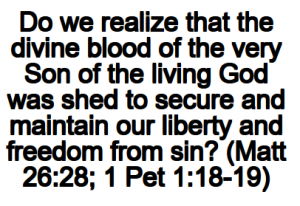 disciple of Jesus has all the fruit of the Holy Spirit which include, “Love, joy, peace…” (Galatians 5:22-23) God gives His people “power… love, and a sound mind.” (2 Timothy 1:7) God’s Word has the answer to “ALL things that pertain unto life and godliness” and that specifically includes a “sound mind.” (2 Peter 1:3-4) Holy Scripture specifically uses the terms “sound mind” and “sound heart” which come only from learning and adhering to “sound doctrine.”
disciple of Jesus has all the fruit of the Holy Spirit which include, “Love, joy, peace…” (Galatians 5:22-23) God gives His people “power… love, and a sound mind.” (2 Timothy 1:7) God’s Word has the answer to “ALL things that pertain unto life and godliness” and that specifically includes a “sound mind.” (2 Peter 1:3-4) Holy Scripture specifically uses the terms “sound mind” and “sound heart” which come only from learning and adhering to “sound doctrine.”
We live in a fallen world and were born in sin. Via the things that have happened to us and that we ourselves have perpetrated on others, fragmentation of our hearts has occurred. Only One can make us whole.
“And there was delivered unto him the book of the prophet Esaias. And when he had opened the book, he found the place where it was written, 18 The Spirit of the Lord is upon me, because he hath anointed me to preach the gospel to the poor; he hath sent me to heal the brokenhearted, to preach deliverance to the captives, and recovering of sight to the blind, to set at liberty them that are bruised, 19 To preach the acceptable year of the Lord.” Luke 4:17-19
“And the very God of peace sanctify you wholly; and I pray God your whole spirit and soul and body be preserved blameless unto the coming of our Lord Jesus Christ. 24 Faithful is he that calleth you, who also will do it.” 1 Thessalonians 5:23-24
“He healeth the broken in heart, and bindeth up their wounds.” Psalms 147:3
Counting it all Joy
“My brethren, count it all joy when ye fall into divers temptations; 3 Knowing this, that the trying of your faith worketh patience. 4 But let patience have her perfect work, that ye may be perfect and entire, wanting nothing. 5 If any of you lack wisdom, let him ask of God, that giveth to all men liberally, and upbraideth not; and it shall be given him. 6 But let him ask in faith, nothing wavering. For he that wavereth is like a wave of the sea driven with the wind and tossed. 7 For let not that man think that he shall receive any thing of the Lord. 8 A double minded man is unstable in all his ways.” James 1:2-8
Through the trials we face in this life, we must learn to “count it all joy when ye fall into divers temptations”, trust God not men, ask for and rely on His wisdom and not waver, but rather finished our course trusting and walking with Christ to the end of our lives.
“I have fought a good fight, I have finished my course, I have kept the faith:” 2 Timothy 4:7
“For God is not unrighteous to forget your work and labour of love, which ye have shewed toward his name, in that ye have ministered to the saints, and do minister. 11 And we desire that every one of you do shew the same diligence to the full assurance of hope unto the end: 12 That ye be not slothful, but followers of them who through faith and patience inherit the promises.” Hebrews 6:10-12
The Whole Heart
“And all Judah rejoiced at the oath: for they had sworn with all their heart, and sought him with their whole desire; and he was found of them: and the LORD gave them rest round about.” 2 Chronicles 15:15
The result of seeking the LORD with a whole heart is that He gives us “rest round about.”
“But whoso hearkeneth unto me shall dwell safely, and shall be quiet from fear of evil.” Proverbs 1:33
9 Times in the book of Psalms the words “Whole Heart” appear. Here’s the first 3 of that collection:
“I will praise thee, O LORD, with my WHOLE HEART; I will shew forth all thy marvellous works.” Psalms 9:1
“Praise ye the LORD. I will praise the LORD with my WHOLE HEART, in the assembly of the upright, and in the congregation.” Psalms 111:1
“Blessed are they that keep his testimonies, and that seek him with the WHOLE HEART.” Psalms 119:2
PRAYER: Dear heavenly Father, I have sinned against You by not wholly trusting You. I have not sought You with my whole heart. Here and now I confess this for the evil sin of unbelief and rebellion that it is and ask You to please forgive me now in the name of Jesus. Please wash me afresh from all my sins with the precious blood of Jesus Christ. Also please make my heart whole and increase and fill me with Your faith Father, and cause me to trust You with all of my heart, no matter what. I love You my dear LORD. In Jesus’ name. Amen.
Lukewarm is Hell Bound | OSAS/eternal security is a lie from hell |
Support | STORE | Podcasts | Jail/Prison Ministry | Mexico Mission here | All Ministry Updates | The Return of Christ | Stewardship | Apostate Modern Church Exposed | Beware of the BUZZ WORD Bandits [podcast] | Preach the Word | Wolves Exposed | Church Membership Exposed | 100’s of Christ-centered, Scripture-rich Podcasts | Knowing God | The Cross Life | Christology = the Study of Christ



Abiding
“NEVER take a Vacation from God” [podcast]

God’s Word teaches us to be diligent in knowing and following Christ – even when the word diligent is not used.
“Seek the Lord and his strength, seek his face continually.” 1 Chronicles 16:11
Make the deliberate decision to “set…
“Now set your heart and your soul to seek the Lord your God; arise therefore, and build ye the sanctuary of the Lord God, to bring the ark of the covenant of the Lord, and the holy vessels of God, into the house that is to be built to the name of the Lord.” 1 Chronicles 22:19
“Don’t you EVER take a vacation from God!” said my first pastor.
This beloved brother knew exactly what happens when the disciple relaxes in his seeking of the LORD. Think foolish virgins. The result can be deadly, irrevocably.
He was dead on in this warning. Give the flesh an inch and it will take a mile, right?
Have you ever slipped backward? If so, you know it started with just not reading God’s Word one day. That one day turned into two, three…. Right?
Never must this happen. The war is won in the now. You must “Be sober, be vigilant; because your adversary the devil, as a roaring lion, walketh about, seeking whom he may devour” (1 Peter 5:8).
“Submit yourselves therefore to God. Resist the devil, and he will flee from you.” James 4:7
God requires that we “give diligence to make your calling and election sure: for if ye do these things, ye shall never fall” (2 Peter 1:10).
It’s only those who remain built up in Christ like the wise virgins of Jesus’ parable, who “keep” themselves “in the love of God” who are not going to fall away.
“But ye, beloved, building up yourselves on your most holy faith, praying in the Holy Ghost, 21 Keep yourselves in the love of God, looking for the mercy of our Lord Jesus Christ unto eternal life. … Now unto him that is able to keep you from falling, and to present you faultless before the presence of his glory with exceeding joy, 25 To the only wise God our Saviour, be glory and majesty, dominion and power, both now and ever. Amen.” Jude 20-25
Jesus warns:
“Watch and pray, that ye enter not into temptation: the spirit indeed is willing, but the flesh is weak.” Matthew 26:41
How did this kind of wisdom get lost from us beloved of God?
The disciple must get out ahead of the flesh. He must be one step ahead – knowing by testimony of the Word and by personal experience that there is “NO good thing” in us other than Jesus (Romans 7:18). This is exactly why Paul also said things like:
“I die daily.” 1 Corinthians 15:31
“But I keep under my body, and bring it into subjection: lest that by any means, when I have preached to others, I myself should be a castaway.” 1 Corinthians 9:27
Exhorting the sheep of Christ, one pastor said:
“Have fun this summer. Enjoy the outdoors. Travel to see friends and family. Explore the world. Just don’t take a vacation from God. He loves you more than you can imagine and wants to keep refilling your sack with his awesome gifts so that you can keep sharing them with others in your life!”
“The desire accomplished is sweet to the soul: but it is abomination to fools to depart from evil.” Proverbs 13:19
Various Quotes on the Importance of Diligence
“Nothing in the world can take the place of persistence. Talent will not; nothing is more common than unsuccessful men with talent. Genius will not; unrewarded genius is almost a proverb. Education will not; the world is full of educated derelicts.”―Calvin Coolidge
“But I never could have done what I have done, without the habits of punctuality, order, and diligence…”―Charles Dickens
“Prefer diligence before idleness, unless you esteem rust above brightness.”―Plato
“Diligence is the mother of good fortune.”―
“Amateurs look for inspiration; the rest of us just get up and go to work.”
“If he [Thomas Edison] had a needle to find in a haystack, he would not stop to reason where it was most likely to be, but would proceed at once with the feverish diligence of a bee, to examine straw after straw until he found the object of his search.”―Nikola Tesla
“Laziness looks at excuses as something to treasure while diligence always focuses on excuses as an inconvenience to be overcome.”―
“The three great essentials to achieve anything worthwhile are, first, hard work; second, stick-to-itiveness; third, common sense.”―Thomas Alva Edison
“That which ordinary men are fit for, I am qualified in, and the best of me is diligence.”―William Shakespeare
“Active valour may often be the present of nature; but such patient diligence can be the fruit only of habit and discipline.”―Edward Gibbon
“Diligence overcomes difficulties; sloth makes them.”―Benjamin Franklin
“The slothful man saith, There is a lion in the way; a lion is in the streets.” Proverbs 26:13
“In all labour there is profit: but the talk of the lips tendeth only to penury.” Proverbs 14:23
“Wherefore gird up the loins of your mind, be sober, and hope to the end for the grace that is to be brought unto you at the revelation of Jesus Christ;” 1 Peter 1:13
“Wherefore – Having such encouragement. Gird up the loins of your mind – As persons in the eastern countries were wont, in travelling or running, to gird up their long garments, so gather ye up all your thoughts and affections, and keep your mind always disencumbered and prepared to run the race which is set before you. Be watchful – As servants that wait for their Lord. And hope to the end – Maintain a full expectation of all the grace – The blessings flowing from the free favour of God. Which shall be brought to you at the final revelation of Jesus Christ – And which are now brought to you by the revelation of Christ in you.“―John Wesley
“Slothfulness (laziness, lack of diligence) casteth into a deep sleep; and an idle soul shall suffer hunger.” Proverbs 19:15
Power Words Power our Lives!
Remember those power words your parents instilled in your growing up? Remember things like “readers are leaders”? How about “The early bird gets the worm”?
What are some of the good words your beloved parents instilled in you as a child that live on in your mind and heart daily?
My beloved father taught us five to “always be consistent.” Oh and these weren’t just words. Oh no. My brother and I are only 13 months apart and so when we started playing football at about 6 years old, my parents set us down and looked us in the eyes and said “If you start this football season, you WILL finish. We require it of you, so count the cost.”
Nothing replaces consistency. Say it out loud with me right now beloved of God – CONSISTENCY.
While we’re on this topic, I hope you won’t mind me saying that it is befuddling to see how people start doing something that works and then quit – from a work out program to a lifestyle change in eating and most devastatingly, serving God then quitting.
Wait a minute, you were doing _______ and it was working, was blessing you, and then you quit?
Hebrews 10:32-39
“But call to remembrance the former days, in which, after ye were illuminated, ye endured a great fight of afflictions;
33 Partly, whilst ye were made a gazingstock both by reproaches and afflictions; and partly, whilst ye became companions of them that were so used.
34 For ye had compassion of me in my bonds, and took joyfully the spoiling of your goods, knowing in yourselves that ye have in heaven a better and an enduring substance.
35 Cast not away therefore your confidence, which hath great recompence of reward.
36 For ye have need of patience, that, after ye have done the will of God, ye might receive the promise.
37 For yet a little while, and he that shall come will come, and will not tarry.
38 Now the just shall live by faith: but if any man draw back, my soul shall have no pleasure in him.
39 But we are not of them who draw back unto perdition; but of them that believe to the saving of the soul.”
Hebrews 6:9-12
“But, beloved, we are persuaded better things of you, and things that accompany salvation, though we thus speak. 10 For God is not unrighteous to forget your work and labour of love, which ye have shewed toward his name, in that ye have ministered to the saints, and do minister. 11 And we desire that every one of you do shew the same diligence to the full assurance of hope unto the end: 12 That ye be not slothful, but followers of them who through faith and patience inherit the promises.”
62 times the words “diligent,” “diligence,” and “diligently” appear in Holy Scripture.
Each time we read these words, they pertain specifically to serving God “diligently” with “diligence.”
“Diligent”
“He becometh poor (spiritually) that dealeth with a slack hand: but the hand of the diligent maketh rich (spiritually).” Proverbs 10:4
“Diligence”
“Keep thy heart with all diligence; for out of it are the issues of life.” Proverbs 4:23
“Diligently”
appears 37 times in God’s Word
“But without faith it is impossible to please him: for he that cometh to God must believe that he is, and that he is a rewarder of them that DILIGENTLY seek him.” Hebrews 11:6
“Looking DILIGENTLY lest any man fail of the grace of God; lest any root of bitterness springing up trouble you, and thereby many be defiled;” Hebrews 12:15
“Keep your dukes up!”
Growing up boxing, from home training to being on a golden gloves team in high school, the command of the coaches was always and repeatedly “Keep your dukes up!”
Those who drop their dukes, their hands from covering their face, get hit, get knocked out.
Another sign on the wall of that boxing facility was: “When the going gets tough, the tough get going.” unknown
We are going to go through what Jesus foretold:
“For then shall be great tribulation, such as was not since the beginning of the world to this time, no, nor ever shall be. 22 And except those days should be shortened, there should no flesh be saved: but for the elect’s sake those days shall be shortened.” Matthew 24:21-22
YOUR PRAYER: Holy Father, in the name of Jesus I come to You now. Please forgive my sins of self-idolatry, slothfulness, and spiritual adultery.
Support | STORE | Podcasts | Making Peace with God | It is Finished! | Discipleship | The Gospel Centers Upon Christ’s Blood | Christology | The Gospel: What is It?



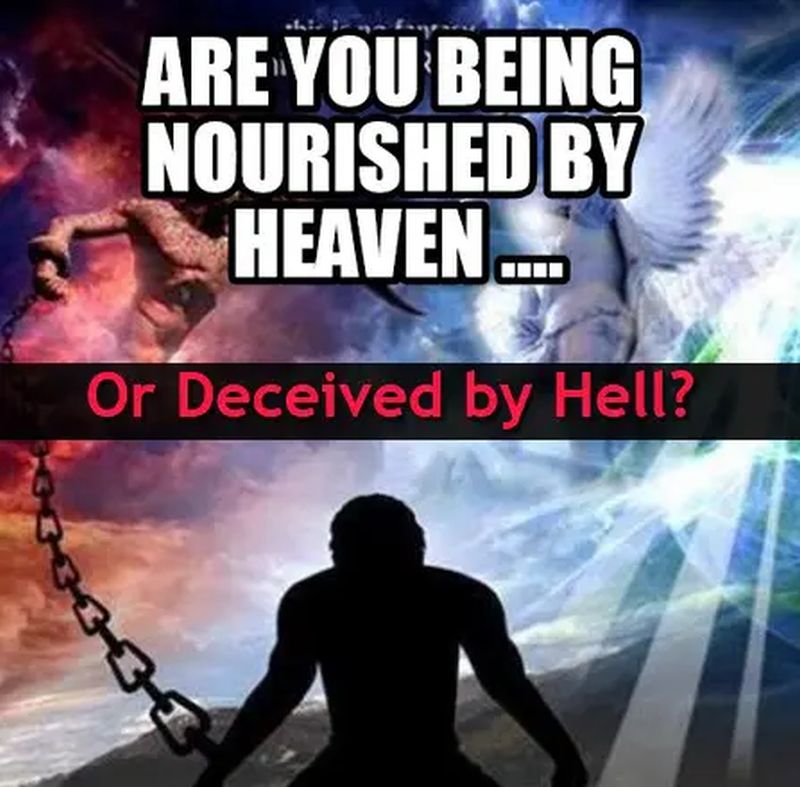

 America12 months ago
America12 months agoThe Drugging of America: The Pharmakeia Sorcery Deception [podcast]

 Articles2 years ago
Articles2 years agoChildren being Rescued in Tunnels: Happening Now – UPDATE!

 Articles8 years ago
Articles8 years agoSelf-Examination in Preparation for the Lord’s Return

 Apostasy2 years ago
Apostasy2 years agoSHOCKING List of False Prophets Most Believe are True













